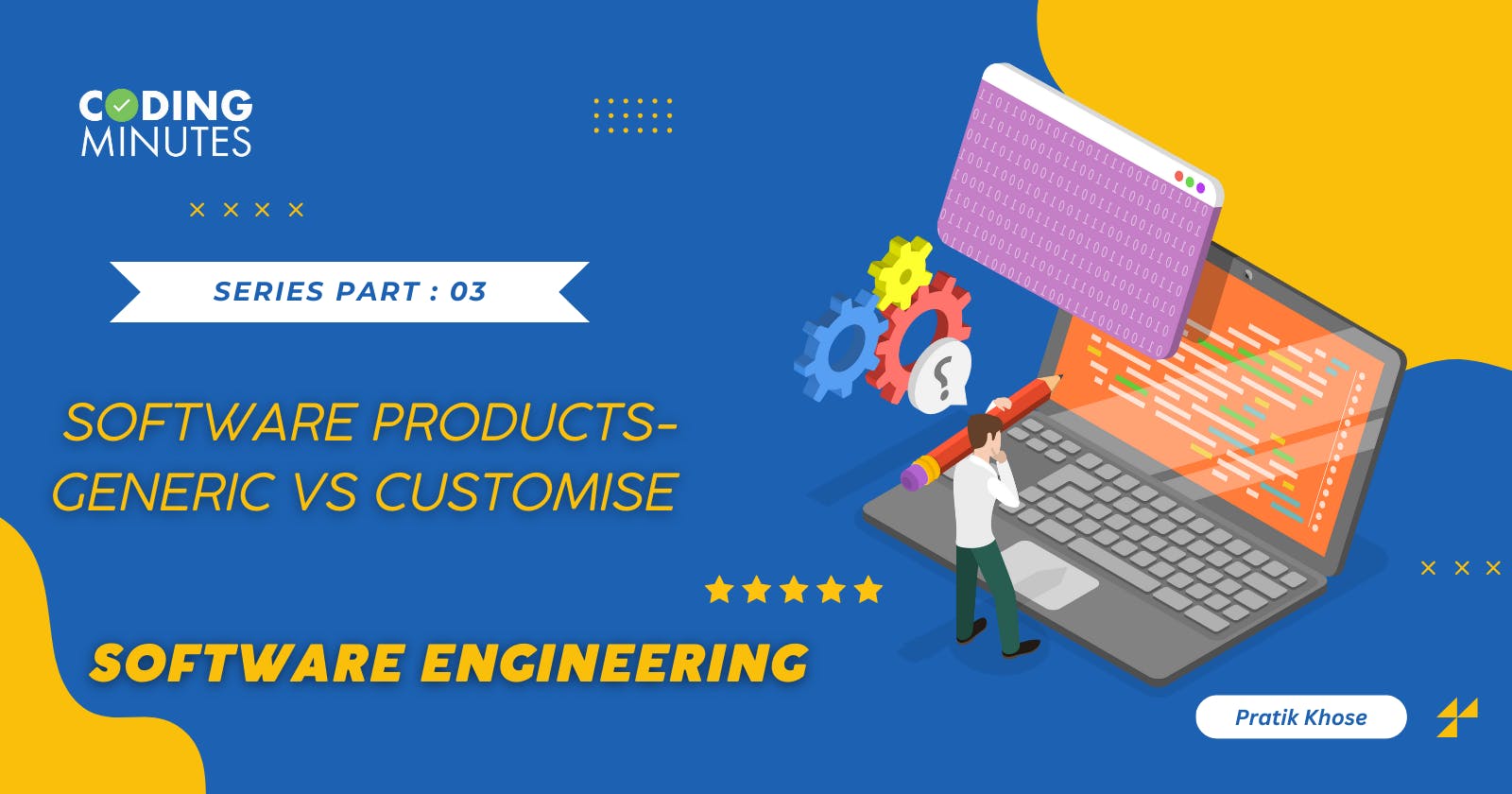During the Software development process, the development and the journey from conception to development culminate in the creation of diverse software products.
Two distinct categories emerge from this process, each serving unique needs and purposes. Let us understand both of these software types in detail. These software processes yield two kinds of software products
Generic products
Customise products
Now let us understand about each of these products in detail
- Generic products:- these products are standalone systems that are produced by a development organization and sold on the open market to any customer who can buy them. These products are mainly built for open-source development and customer use and mainly focus on providing services. These generic products have no limitations or restrictions over customer usage. Anyone and everyone across the globe can access it.
Example image video rendering or editing software which are both free and paid available openly to everyone.
- Customize products:- These products are like tailored suits- precisely designed to fit the specific, unique requirements. These are system data commissioned by a particular customer or an organization Those who have specific plan goal requirements for their customized software. These customized products need special access or need special authority to access these software. A software contractor develops the software specifically for the customer. Customized products provide a level of precision and functionality that a generic solution may not deliver.
Example a customized student management system software for a particular school or University.
Now let us understand the differences between these two types of products. Key differences between generic products and customized products in software development are:-
| Aspect | Generic Products | Customized Products |
| Target Audience | The broad, diverse user base. | Specific individuals or organizations. |
| Features and Functionality | Standardized, common features. | Tailored to unique requirements. |
| Flexibility | Limited customization options. | Highly customizable, and adaptable. |
| Development Time | Shorter development cycles. | Longer development cycles, and more intricate processes. |
| Testing Focus | Ensures compatibility across various environments. | Focuses on meeting specific, defined requirements. |
| Cost | Economies of scale, are generally more cost-effective. | Higher initial costs, potential for long-term savings. |
| Examples | Microsoft Office Suite, Adobe Photoshop. | Customized Customer Relationship Management (CRM) software, Bespoke Enterprise Solutions. |
This table provides a concise overview of the distinctions between generic and customized software products, emphasizing their characteristics in terms of target audience, features, flexibility, development time, testing focus, cost, and examples.
In some cases, software products may embody elements of both generic and customized solutions. Hybrid solutions combine the adaptability of customization with the broader applicability of generic products. For example, an e-commerce platform may offer a generic online store solution while allowing business to customize their storefronts to reflect their unique brand identities.

